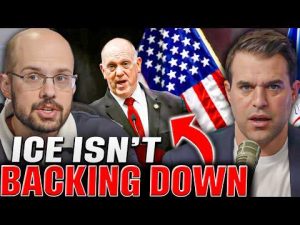In Virginia, a significant case has emerged that raises critical questions about free speech and the role of faith in public life. Wilson Faber, a realtor and pastor, is facing repercussions from the Virginia Association of Realtors for sharing a biblical verse on his Facebook page. This verse, which speaks to the Christian belief about marriage, has resulted in accusations of hate speech filed by a couple of fellow realtors, leading to a breach of ethics ruling against him. This situation not only affects Faber personally but also reflects broader societal trends that challenge the expression of Christian beliefs in public forums.
The issue began when Faber, six years ago, reposted a scripture from Reverend Franklin Graham, expressing traditional biblical views on marriage. His post ignited controversy only after new rules were introduced by the National Association of Realtors, which prohibits what they define as hate speech against certain protected classes, including sexual orientation and gender identity. It raises the question: why is this enforcement occurring now, years after the post was made, and under a rule that did not exist at the time? Many observers see this as part of a larger wave of “woke” policies infiltrating professional organizations, stifling dissenting voices that align with traditional Christian values.
Faber argues that expressing a religious view, especially one grounded in scripture, should not be categorized as hate speech. He believes that his post merely reflects the teachings of the Bible and does not advocate for animosity towards others. The disconnect between the application of the National Association of Realtors’ policy and Faber’s previous actions illustrates a concerning trend towards the suppression of religious expression. When faith-based views are treated as discriminatory, it signals a troubling precedent for Christians and others who hold traditional beliefs.
This case serves as a reminder that the First Amendment protects not only the right to express religious beliefs but also the freedom to share those views in various public spheres, including social media. However, Faber’s situation raises a significant concern: can organizations impose restrictions on personal expressions of faith? The implications extend beyond the real estate industry and could influence many other professions where personal beliefs must now navigate a complex web of organizational ethics and policies.
As this case unfolds, it highlights the necessity for Christians to be vigilant in defending religious liberties amid changing cultural norms. It is crucial for the evangelical community to support individuals like Wilson Faber who stand firm in their convictions, advocating for the rights to express faith openly and without fear of persecution. When Christians can no longer share their beliefs without facing consequences, the very fabric of religious freedom in America is at risk. This situation calls for prayer, dialogue, and decisive action to ensure that the foundational liberties, which allow for the free exercise of religion, remain intact for all.







